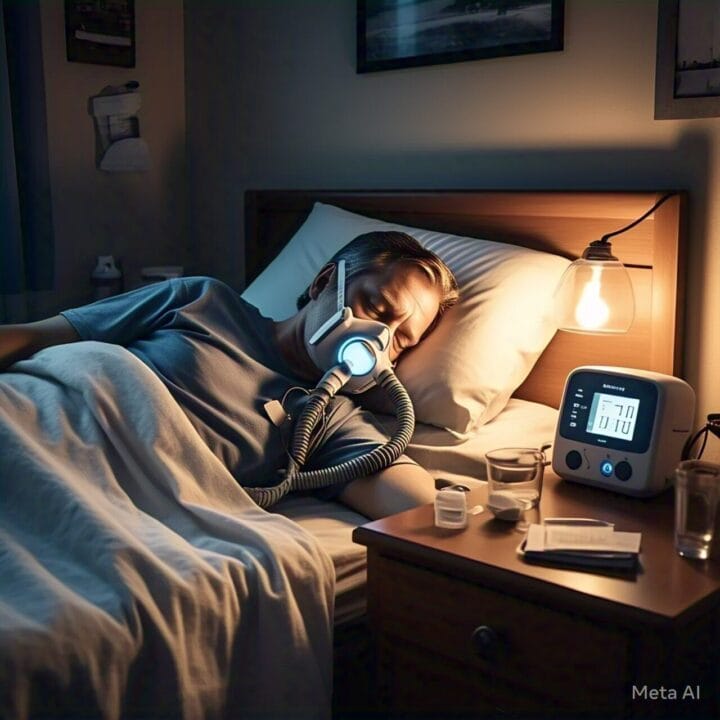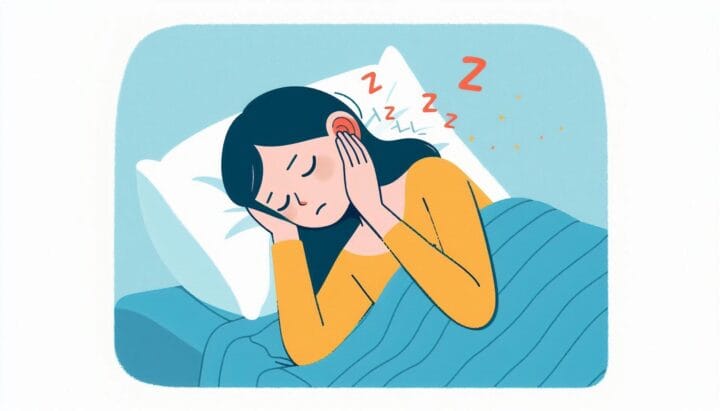Treatments for Snoring: Quiet Nights for Better Sleep
Table of Contents

Snoring can disrupt your sleep and your partner’s rest. But don’t worry – there are plenty of ways to tackle this noisy nighttime habit. Let’s dive into some effective treatments that can help you breathe easier and sleep more soundly.
Why Snoring Happens
Before we jump into solutions, it’s helpful to understand what causes snoring. When you sleep, the muscles in your throat relax. This can narrow your airway, making it harder for air to flow smoothly. As air squeezes through, it causes the surrounding tissues to vibrate – and that’s what creates that familiar snoring sound.
Simple Lifestyle Changes
Sleep Position Matters
One of the easiest fixes? Change how you sleep. Lying on your back often makes snoring worse. Try sleeping on your side instead. A body pillow can help keep you in this position throughout the night.
Shed Some Pounds
If you’re carrying extra weight, losing a few pounds might help. Extra tissue in your throat can contribute to snoring, so slimming down could make a big difference.
Skip the Nightcap
That glass of wine before bed might seem relaxing, but alcohol can actually make snoring worse. It relaxes your throat muscles too much, increasing the likelihood of snoring.
Over-the-Counter Solutions
Nasal Strips and Dilators
These simple devices can open up your nasal passages, making it easier to breathe through your nose. They’re cheap, easy to use, and might be all you need for a quieter night.
Anti-Snoring Mouthpieces
These gadgets help position your jaw or tongue to keep your airway more open. They take some getting used to, but many people find them effective.
Medical Treatments
CPAP Machines
For more severe cases, especially if sleep apnea is involved, a CPAP machine might be recommended. It delivers a steady stream of air to keep your airway open all night.
Surgical Options
In some cases, surgery might be considered. This could involve removing excess tissue in the throat or correcting structural issues in the nose.
Natural Remedies
Stay Hydrated
Drinking plenty of water throughout the day can help. When you’re dehydrated, secretions in your nose and soft palate get stickier, which can increase snoring.
Try Some Throat Exercises
Believe it or not, exercising your throat muscles might help reduce snoring. Simple exercises like singing or pronouncing vowel sounds can strengthen these muscles over time.
When to See a Doctor
If your snoring is loud, persistent, or accompanied by gasping or choking sounds, it’s time to talk to a healthcare professional. These could be signs of sleep apnea, which requires medical attention.
Creating a Snore-Free Sleep Environment
Elevate Your Head
Propping up your head with an extra pillow can help keep your airways more open.
Clean Air Matters
Use an air purifier in your bedroom to reduce allergens that might contribute to snoring.
Tracking Your Progress
Keep a sleep diary or use a sleep tracking app to monitor your snoring. This can help you see which treatments are working best for you.
Conclusion
Remember, snoring is common and often treatable. Start with simple changes and work your way up to more advanced solutions if needed. With some patience and persistence, you can find a way to quiet those noisy nights and get the restful sleep you deserve.
FAQs
- Can snoring be dangerous?
While occasional snoring is usually harmless, chronic snoring can be a sign of sleep apnea, which can have serious health consequences if left untreated. - How long does it take to see results from anti-snoring treatments?
It varies depending on the treatment. Some, like nasal strips, can work immediately. Others, like lifestyle changes, might take weeks or months to show full effects. - Are there any foods that can help reduce snoring?
Some people find that eating anti-inflammatory foods like pineapple or garlic can help reduce snoring, though scientific evidence is limited. - Can children snore too?
Yes, children can snore. If it’s frequent, it’s worth discussing with their pediatrician as it could indicate issues like enlarged tonsils or adenoids. - Is snoring genetic?
There can be a genetic component to snoring, but environmental factors and lifestyle choices play a big role too.
Citations:
[1] https://www.mayoclinic.org/diseases-conditions/snoring/diagnosis-treatment/drc-20377701
[2] https://my.clevelandclinic.org/health/diseases/15580-snoring
[3] https://www.healthline.com/health/snoring-remedies
[4] https://www.enthealth.org/be_ent_smart/treatment-options-for-adults-with-snoring/
[5] https://www.sleepfoundation.org/snoring/how-to-stop-snoring
[6] https://www.hopkinsmedicine.org/health/conditions-and-diseases/snoring
[7] https://www.webmd.com/sleep-disorders/features/easy-snoring-remedies
[8] https://stanfordhealthcare.org/medical-conditions/sleep/snoring/treatments.html














Post Comment